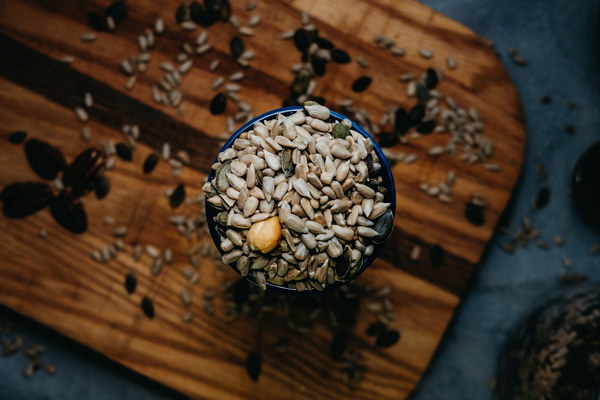The Optimal Dosage of Ginseng in Postpartum Dietetics A Comprehensive Guide
Introduction:
Postpartum dietetics plays a crucial role in the recovery process of new mothers. Among the numerous herbs and ingredients used in postpartum recipes, ginseng stands out as a vital component due to its numerous health benefits. However, determining the optimal dosage of ginseng in postpartum dietetics is essential to ensure safety and efficacy. In this article, we will explore the ideal dosage of ginseng in postpartum dietetics and provide you with valuable insights to help you make informed decisions.
The Importance of Ginseng in Postpartum Dietetics:
Ginseng is a traditional Chinese herb known for its adaptogenic properties, which means it can help the body adapt to various physiological and psychological stressors. During the postpartum period, new mothers face numerous challenges, such as fatigue, mood swings, and weakened immune systems. Ginseng can help alleviate these symptoms and promote overall well-being.
Optimal Dosage of Ginseng in Postpartum Dietetics:
The optimal dosage of ginseng in postpartum dietetics may vary depending on factors such as the individual's health condition, body weight, and overall tolerance to the herb. However, the following dosage guidelines can serve as a general reference:
1. Fresh Ginseng: 3-5 grams per day
2. Dried Ginseng: 3-9 grams per day
3. Ginseng Extract: 100-300 mg per day
It is essential to consult a healthcare professional before starting any new herbal regimen, especially during the postpartum period.
Benefits of Ginseng in Postpartum Dietetics:
1. Boosts Energy: Ginseng can help combat fatigue and increase energy levels, making it easier for new mothers to cope with the demands of caring for a newborn.
2. Enhances Immune System: Ginseng has been shown to enhance the immune system, reducing the risk of infections and promoting a quicker recovery from illness.
3. Improves Mood: The adaptogenic properties of ginseng can help alleviate mood swings and promote emotional well-being, which is crucial for the mental health of new mothers.
4. Aids in Breast Milk Production: Some studies suggest that ginseng may help increase breast milk production, providing essential nutrients for the baby's growth and development.
5. Promotes Digestive Health: Ginseng can help regulate digestion, reducing the risk of postpartum constipation and bloating.

How to Incorporate Ginseng into Postpartum Dietetics:
1. Ginseng Tea: Boil 3-5 grams of fresh or dried ginseng in water for 15-20 minutes. Strain and drink the tea twice a day.
2. Ginseng Soup: Add 3-9 grams of ginseng to your favorite soup recipe. Enjoy the soup twice a week for the benefits of ginseng.
3. Ginseng Extract: Take a ginseng extract supplement as directed by your healthcare professional.
4. Ginseng Powder: Mix 1-2 grams of ginseng powder with warm milk or water. Consume once a day.
Conclusion:
Incorporating ginseng into postpartum dietetics can provide numerous health benefits for new mothers. By following the optimal dosage guidelines and consulting with a healthcare professional, you can safely enjoy the benefits of ginseng during this critical period of recovery. Remember that individual needs may vary, so it is essential to adjust the dosage accordingly and prioritize your health and well-being.









